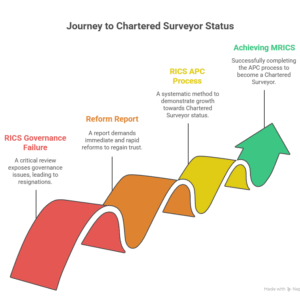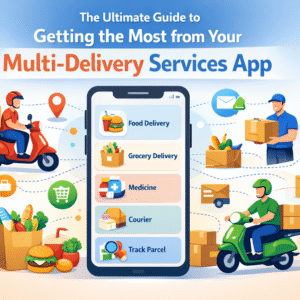In today’s fast-paced world, the integration of technology in healthcare has become more than a convenience—it is a necessity. Healthcare Software has emerged as a critical tool in transforming how communities manage health services, streamline operations, and enhance patient care. Platforms like SocialRoots’ Community Healthcare Management System offer nonprofit organizations and healthcare providers a comprehensive approach to improving access, efficiency, and outcomes in community health. By adopting such advanced software, healthcare organizations can address the complexities of patient care, staff coordination, and resource allocation while ensuring compliance and transparency in operations.
Understanding the Role of Healthcare Software in Modern Communities
Healthcare in community settings often involves multiple stakeholders, including clinics, local health authorities, nonprofits, and social care agencies. Traditionally, managing these interactions has been challenging due to fragmented systems, manual record-keeping, and limited communication channels. Healthcare Software serves as a unifying platform that consolidates patient records, automates workflow processes, and enables seamless collaboration among caregivers.
This digital transformation ensures that healthcare providers have real-time access to critical information, which not only improves the quality of care but also minimizes errors and redundancies. For communities with limited resources, the adoption of robust healthcare software can mean the difference between reactive and proactive health management.
Key Features That Define Community Healthcare Software
Modern healthcare software offers a wide array of features tailored to meet the needs of community health organizations. One of the core functionalities is patient management. This includes the ability to maintain comprehensive electronic health records (EHRs), track patient interactions, and monitor treatment outcomes over time.
Another essential feature is referral management. Community healthcare often relies on efficient coordination between various providers. Software platforms facilitate closed-loop referral systems, ensuring patients are guided to the right services promptly, and follow-up care is tracked effectively.
Reporting and analytics are also integral. By leveraging data collected through the system, organizations can gain insights into population health trends, identify gaps in care, and make data-driven decisions that optimize resource allocation and program effectiveness.
Enhancing Patient Engagement and Outcomes
Healthcare software is not just about streamlining internal processes—it directly impacts patient experiences and outcomes. With digital platforms, patients can schedule appointments, receive reminders, and access educational resources, fostering better engagement and adherence to care plans.
For community-based programs, where patients may face barriers such as transportation challenges or inconsistent access to care, healthcare software ensures continuity. Telehealth integration, mobile access, and communication tools embedded in these platforms allow patients to maintain regular contact with providers, reducing gaps in treatment and improving overall health outcomes.
Improving Coordination Among Healthcare Providers
One of the persistent challenges in community healthcare is ensuring effective collaboration among various providers. Whether it’s coordinating between primary care physicians, specialists, or social service agencies, miscommunication can lead to delays, errors, and inefficient care.
Healthcare software acts as a central hub, enabling providers to share patient records securely, communicate treatment plans, and track progress in real-time. This not only enhances operational efficiency but also ensures a holistic approach to patient care, where every provider is informed and aligned with the patient’s journey.
Streamlining Administrative and Operational Tasks
Administrative burdens often consume a significant portion of healthcare providers’ time, detracting from direct patient care. Community healthcare software automates routine tasks such as appointment scheduling, billing, reporting, and compliance tracking.
By reducing the time spent on manual administrative work, staff can focus on delivering high-quality care and engaging with patients meaningfully. Additionally, automated reporting tools help organizations monitor performance metrics, measure program effectiveness, and fulfill regulatory requirements with minimal effort.
Driving Data-Driven Decisions in Community Health
Data is one of the most valuable assets in healthcare. Through healthcare software, organizations can collect, store, and analyze vast amounts of information on patient demographics, health trends, and service utilization.
Data-driven insights empower community health managers to identify emerging health issues, allocate resources efficiently, and tailor programs to meet the unique needs of the population. Predictive analytics also enable proactive interventions, reducing preventable illnesses and hospitalizations.
Supporting Nonprofit and Community-Based Organizations
Nonprofit organizations play a crucial role in community healthcare, often serving underserved populations and bridging gaps left by traditional healthcare systems. Healthcare software designed for nonprofits addresses specific challenges, such as limited budgets, volunteer management, and diverse program requirements.
Features like donor and funding management, volunteer coordination, and outcome tracking help nonprofits operate more efficiently and demonstrate impact to stakeholders. By integrating healthcare and operational management into a single platform, these organizations can focus on their mission of improving community health rather than being bogged down by logistical challenges.
Security and Compliance Considerations
Handling sensitive patient data requires strict adherence to privacy and security standards. Healthcare software incorporates robust security measures, including encryption, user authentication, and access controls, ensuring that patient information remains protected.
Compliance with regulations such as HIPAA (in the U.S.) or GDPR (in Europe) is built into these systems, helping organizations avoid legal and financial penalties. For community healthcare providers, this assurance of data integrity fosters trust among patients and stakeholders alike.
Cost-Effectiveness and Sustainability
Investing in healthcare software may seem significant initially, but the long-term benefits far outweigh the costs. Automated workflows, reduced errors, improved patient engagement, and better resource utilization translate into measurable financial savings.
Sustainable healthcare practices are increasingly prioritized by communities and funding organizations. By leveraging software to optimize operations and demonstrate outcomes, healthcare providers and nonprofits can secure ongoing support and scale their impact effectively.
The Future of Healthcare Software in Communities
As technology continues to evolve, the potential for healthcare software to transform community health is immense. Artificial intelligence, machine learning, and predictive analytics are increasingly integrated into these platforms, allowing for smarter decision-making and personalized patient care.
The growing adoption of mobile health solutions, remote monitoring, and telemedicine further enhances accessibility, especially for rural and underserved populations. Communities that embrace these innovations will not only improve health outcomes but also set new standards for efficient, patient-centered care.
Case Study: SocialRoots’ Community Healthcare Management System
SocialRoots provides a comprehensive solution tailored to the unique needs of community healthcare organizations. Their platform integrates patient management, referral coordination, volunteer tracking, and reporting functionalities in one seamless system.
Nonprofits using SocialRoots’ Community Healthcare Management System report higher efficiency, better patient engagement, and more accurate tracking of outcomes. By digitizing workflows and providing real-time data access, the system empowers healthcare providers to focus on what truly matters: improving the health and well-being of their communities.
Key Benefits at a Glance
- Centralized Patient Management: Maintain complete records and track care across multiple providers.
- Efficient Referral Systems: Ensure timely access to necessary services.
- Data-Driven Insights: Leverage analytics for strategic decision-making.
- Enhanced Patient Engagement: Improve adherence and outcomes through communication tools.
- Operational Efficiency: Automate administrative tasks and reduce errors.
- Nonprofit Support: Manage volunteers, funding, and program impact effectively.
- Security and Compliance: Protect sensitive data while adhering to regulations.
Conclusion
Healthcare Software is no longer a luxury—it is a cornerstone for community wellness and operational excellence. By embracing platforms like Healthcare Software, community healthcare providers can streamline processes, improve patient engagement, and make informed decisions that have a lasting impact.
As communities face increasing healthcare demands, adopting robust software solutions ensures that organizations can deliver quality care efficiently and sustainably. The future of community health is digital, connected, and data-driven, and the right technology makes all the difference in building healthier, stronger communities.








